June 13, 2020 Leave a Comment
Covid-19 is going to be around for a while and we’ll have to live with it. Here is a guide about everything you need to know about living with Covid-19.
At the time of writing this, India has just become the fourth worst affected country due to Covid-19. After five months and four lockdowns, it has become clear that the coronavirus isn’t going anywhere in the near future. The Indian Health Ministry has also said that we have to “learn to live with the virus and practice behavioural changes.”
So how does one live with a virus? The fact is that this situation is completely new, no one knows how to live like this – not even those who’ve seen war times. However, we know that it’s going to take time for things to get back to normal, which means we have to adapt to the ‘new normal’. Yes, washing hands and wearing masks are going to be away of life, but there’s more. Here we round up all the things you need to know as we adjust to a new life where we learn to live with Covid-19.
Important: All the information presented in this article is based on the findings as of 12th June 2020. References are listed at the end of the article.
Living with Covid-19: What You Need to Know
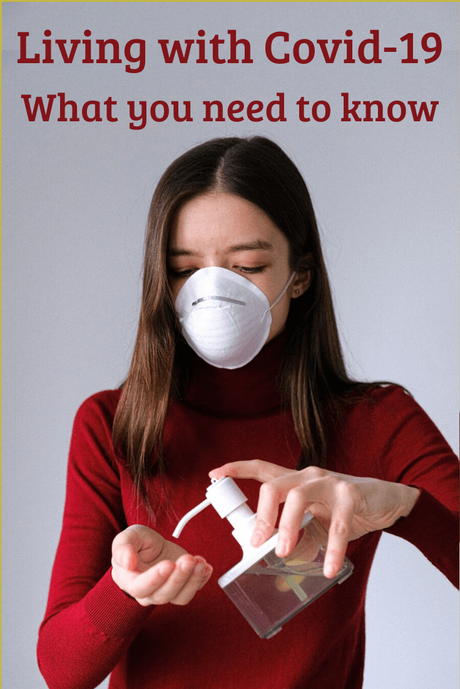
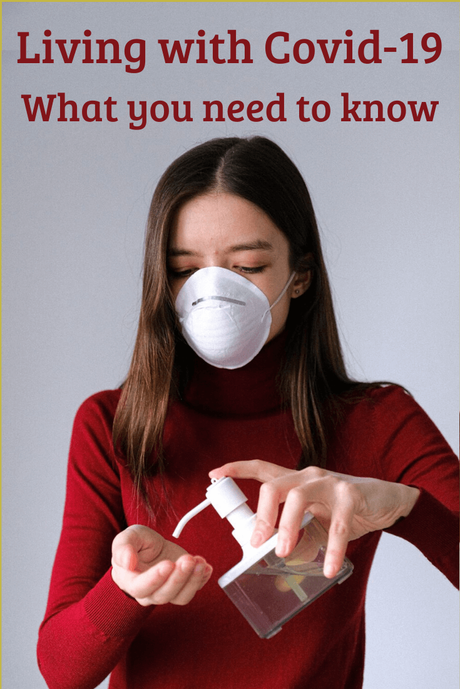
Basics
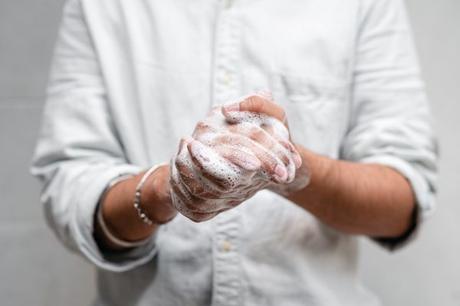
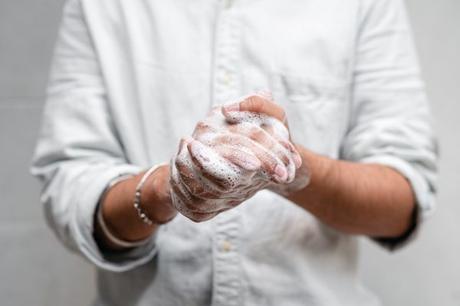
First of all, get the basics straight – wash your hands at frequent intervals with soap and water. Scrub with soap for at least 20 seconds, making sure you get under the nails, in between the fingers and around the wrists. Teach your family members the right way to do it, and focus particularly on children and elders.
If you can’t find soap and water, you can use a sanitizer that has at least 60% alcohol. Again, make sure you cover all parts of your hand – don’t wash off after using sanitizer.
Always maintain at least 1 meter (ideally 2 metres) from other people. This is a distance which prevents any droplets from their mouth or nose from landing on you. It’ll also prevent you from spreading the virus in case you are infected.
Home
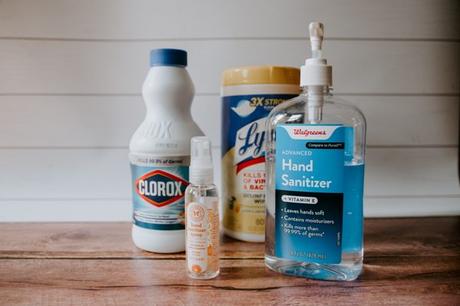
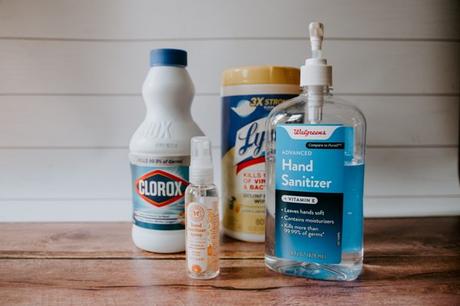
Get your home ready to keep the coronavirus at bay. Make sure you have covered dustbins that can be operated with the foot. Ensure easy access to disinfectant spray, sanitizer wipes, disposable tissues and disposable plastic gloves. Please make sure that young children and babies cannot reach these as they can be dangerous.
To clean hard surfaces like the floor or table tops, use soap and water first, and then wipe with disinfectant. Don’t forget frequently touched surfaces like door handles, counter tops, taps, switches, buttons etc.
To clean soft surfaces, first clean with a cleaner that’s suitable for the surface, like a carpet cleaner. You can then follow up with a vacuum cleaner. For electronics like mobile phones, tablets and laptops, use a sanitizing spray or wipe and then dry it completely.
Family
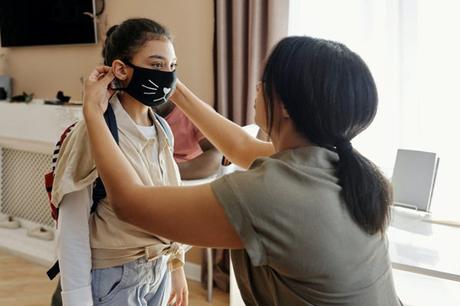
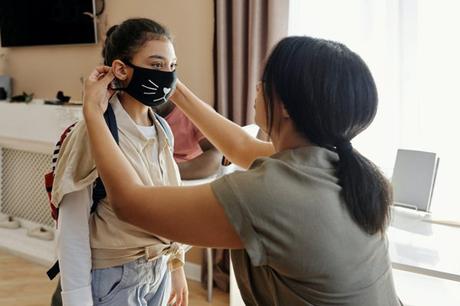
While everyone is susceptible to Covid-19, it can be more dangerous for certain sections of the population. People over the age of 65 are seen to be more likely to end up in intensive care, or even dying. Young children and pregnant women are also at higher risk of developing complications. People with chronic illnesses like diabetes, hypertension or heart problems should be particularly careful.
To protect this category, we need to keep them home as much as possible – this is called ‘shielding’ or ‘reverse quarantine’. If you know such people in your neighborhood and you are not an at-risk person, you can consider helping them with errands or groceries.
Kids can also sense that something is happening around them. Ease their anxiety by talking to them about it and findingways to keep kids occupied. Make sure kids under 10 years don’t go outside.
Animals are also getting affected by coronavirus, although the incidence is low and there is still no proof of pet to human transmission. However, stay safe by keeping your pets indoors, especially cats. When walking dogs, use a leash and keep them at least 2 meters away from others.
Never use face coverings on pets. Always wash your hands after handling your pet or things that come from their bodies, like excreta or hair. Also wash your hands after handling their dishes or toys.
Shopping Online
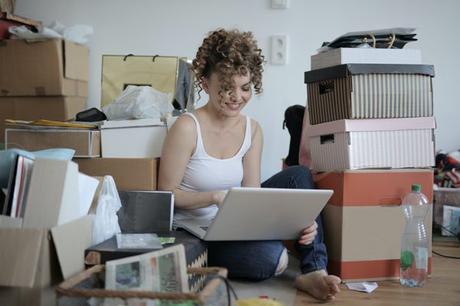
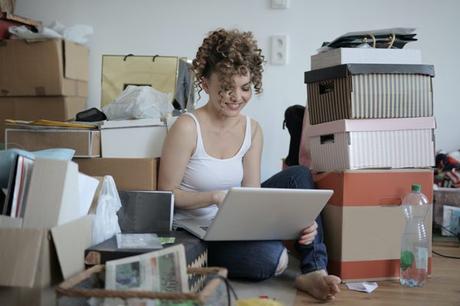
With all the restrictions on going out, shopping online is the most convenient and safest option we have. However, this brings with it another question – how safe are the packages we get?
According to latest research, the coronavirus can live for three days or 72 hours on plastic and steel, while they can’t survive for more than a day on cardboard or copper. But even if the virus can stay on the surface for this long, it becomes mostly non-infectious after 24 hours and getting infected from a package is very low.
Coming to delivery packages, The New England Journal of Medicine says that the virus disintegrates on cardboard within a day. So if you’re worried, you can leave the box for a day before opening it.
In any case, after handling a package you receive, wipe it with a disinfectant and wash your hands. You can also ask the delivery executive to leave the package and stand at a distance, although most of them do follow this now. Avoid COD orders and opt for prepaid ones, to avoid risk on contact.
Follow the same when collecting mail from your mail box. If you need to sign, use your own pen and wash your hands afterwards. When buying clothes, measure your size and get the right one, so you can avoid returning clothes unnecessarily.
Out and About
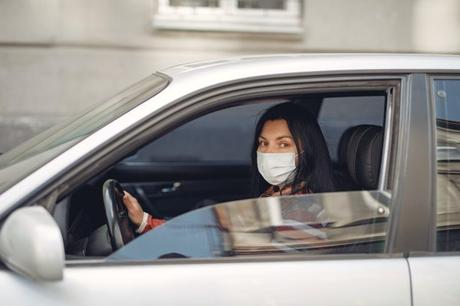
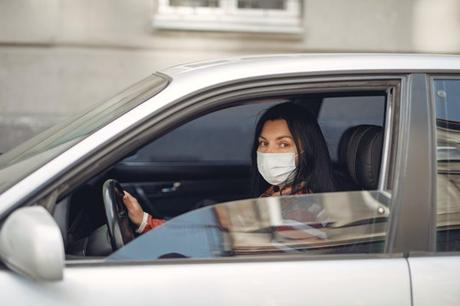
The biggest advice here is this – don’t go out! Even if the lockdown restrictions have been lifted, it does mean that it’s safe to go outside like it was earlier. Order everything home as far as possible, and do other errands like banking or paying bills online as well. Get your entertainment home by streaming movies or TV shows. Pray at home – religious places are very risky even if they’ve opened up.
While it is recommended to stay at home as much as possible, you may have to venture out for work or to buy essentials. For grocery shopping and other regular errands, pick one or two low-risk family members and let them handle the outside chores.
Before you step outside, put a pack of sanitizing wipes, a small sanitizer spray and a hand sanitizer in your bag. Wear a mask and cover your arms if possible with long sleeves. Avoid public transportation unless absolutely essential. If you have to use the bus or train, travel during non-peak times to avoid crowds.
Avoid shaking hands completely. Use namaste, a wave or a nod, as appropriate. Try not to touch common surfaces like ATM buttons, touchscreens, public toilets, elevator buttons, public seats etc. Keep your own pen with you and don’t use the ones at public counters.
Try to avoid handling cash, and opt to pay with card wherever possible. While there hasn’t been any confirmed case of Covid transmission through coins or notes, they can still spread other diseases.
When you get back home, be sure to wash your hands with soap and water. It’s a good idea to change your clothes. While it’s not necessary to take a bath every time you come in from outside, if you have elders and/or young infants, it may be better. If you have been in a crowded situation of any sort, then its certainly recommended to take a bath with a little disinfectant in the bath water.
Work
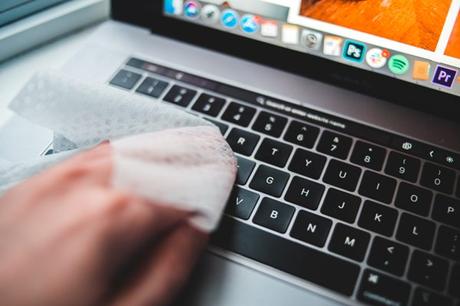
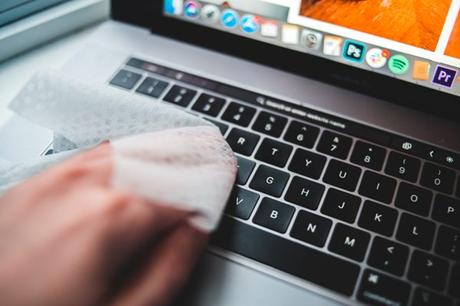
Many companies have gone the work from home route, and if your company hasn’t, it’s time to try asking them. Get yourself a solid internet connection so you can work without interruptions. You’ll also need it for streaming entertainment and for kids’ online classes.
If you do have to travel to work, follow the guidelines mentioned above. If you have to travel to work everyday, you might want to get this key, which will get rid of direct contact with public surfaces. Your workplace will likely have a set of guidelines to follow, but you can still ensure you stay safe with these tips.
As soon as you reach your workplace, wash your hands with soap and water for at least 20 seconds or use a hand sanitizer. Wipe your keyboard, mouse and desktop with a sanitizing wipe – you don’t know what happened there when you were away!
Carry your lunch, snacks and if possible, your coffee and tea to work, to minimize touching anything that’s not from home. Be careful of where you sit down to eat and where you set your lunchbox – carry along a washable mat for this purpose, that you can disinfect when needed.
Grocery Shopping
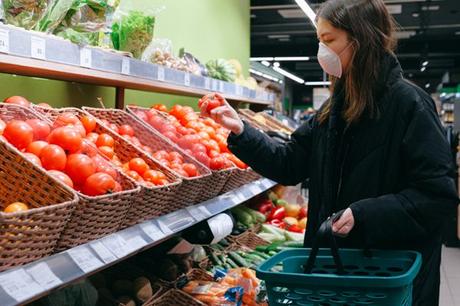
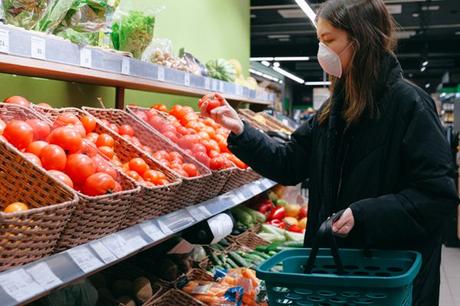
Grocery shopping is something we cannot avoid, since we absolutely need food. Like with everything else, ordering online is best, and even neighborhood stores are now offering home delivery. You can pay via the app too, so there is no contact at all.
In case you need to go out to shop, make a grocery list first, so you don’t waste time in the store. Arrange your list according to categories – frozen foods, grains, vegetables etc. so you can go to one area and get everything you need from there. This will prevent you from constantly wandering from one aisle to another.
Pick a time when the store is least likely to be crowded – mornings when they open are best. Make sure your list will keep you stocked up for at least a week. While it’s not good to hoard, it doesn’t make sense to buy so little that you’re going to the store multiple times a week. Shopping alone is better – it’s faster and safer.
Use a sanitizing wipe or spray to disinfect the handle of the shopping basket or trolley before touching it. When shopping, touch only what you need and avoid touching anything else – this is not the time to browse. Buy staples in bulk, so you can avoid frequent trips and also minimize contacts with packets.
As soon as you get home, wash your hands with soap and water. Now sort your groceries. There hasn’t been any confirmed case of Covid transmission through grocery packaging, but if you want, you can wipe down all your packets with a sanitizing wipe. Don’t forget to disinfect the surface on which you place or sort your groceries and wash your hands afterwards.
Food Preparation
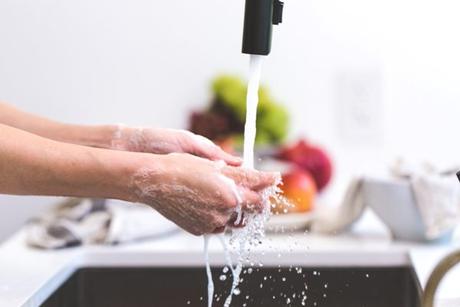
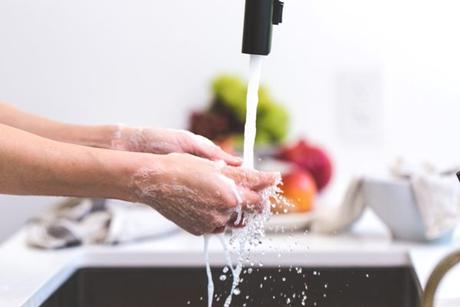
Before you start cooking, it’s a good idea to wear an apron. Then wash your hands with soap and water. There aren’t any specific guidelines for cooking during Covid-19, but WHO urges us to follow basic food safety.
Washing fruits and vegetables well in clean water is sufficient, although you can use an organic vegetable cleaner if you like. Never wash fruits and vegetables with soap, it can cause vomiting and diarrhea. For rough vegetables, you can use a vegetable brush to get rid of harder dirt.
Be careful when handling raw meat, fish and eggs. Ensure these are cooked completely before consumption. Keep cooked food and raw food separated and store them at the right temperatures. Don’t leave food outside for long and always make sure they’re covered.
Ordering Takeaway
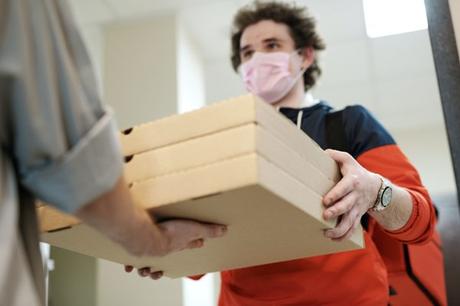
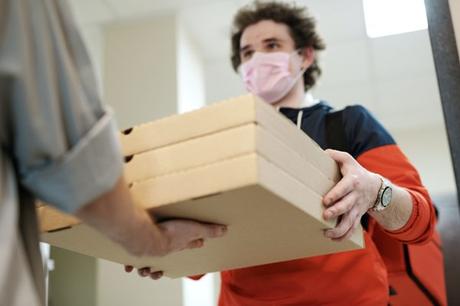
As is obvious, it’s better to cook and eat at home, but in some situations you may have to order in. Although restaurants have opened up, it’s not advised to eat from there – it’s a lot safer to order home.
The coronavirus is not food borne, and there is no evidence of it being transmitted through food. What’s more, the WHO says that coronaviruses are thermolabile, which means they are destroyed at cooking temperatures.
To be on the safe side, order in from a place you trust – it’s not a good time to experiment. Larger restaurants usually have the infrastructure to ensure more stringent guidelines like thermal scanners etc. Pay online so you don’t have to handle cash. Ask the delivery executive to leave the parcel at your door – you can leave a box or bag for him to put it in.
Avoid ordering cold, raw foods like salads and choose hot dishes. Once you get your food, transfer it into your own containers right away and throw away the restaurant containers. Then disinfect the surface you placed the package on and wash your hands thoroughly. Reheat the food again to ensure no viruses remain and eat it immediately. Don’t use the spoons and forks that come with the package – use your own.
Maids
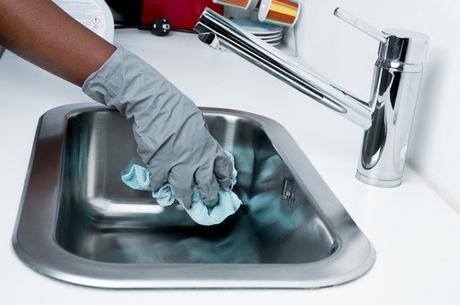
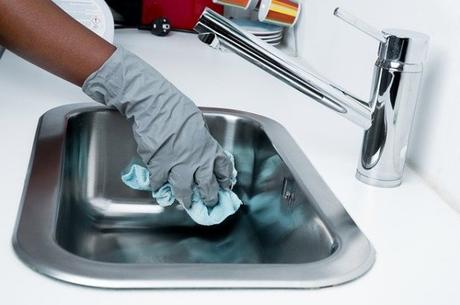
This has been a cause for controversy in recent times. The Central government has not prohibited domestic workers from entering homes, but Resident Welfare Associations are worried about them transmitting the virus from outside.
Legally speaking, the Welfare Associations cannot ban maids from entering the building or society. However, the risk is real, and if you can avoid it, it’s better to delay your maids for a while longer.
Of course, this is a complicated issue. Some employers pay their maids so they don’t suffer during this time. However, some employers themselves are taking pay cuts and may not be able to pay their maids for not working. Even if you can pay them, some maids are not comfortable with taking money without working.
With so many complications, this is a decision to be taken based on every individual case. If you are letting your maid in, you can follow a few precautions to ensure everyone is safe.
Let your maid come home at a non-peak time and avoid public transportation. You may have to pay her a little extra if she is to take an auto every day. In any case ask her to wear a mask at all times. She shouldn’t come if she’s not feeling well or if any of her family members is ill.
Hand your maid a mask and if possible a set of clothes she can use while in your home. Ask her to wash her hands with soap and water and use a hand sanitizer too. Give her a pair of household gloves for her exclusive use, or disposable gloves that can be thrown away when she’s leaving.
Before she arrives, put away all items used on your body, like toothbrushes and combs so she doesn’t have to handle these things. Keep all windows open for ventilation, along with internal doors, so there is minimal contact with the door handles in opening and closing doors. Keep whatever she’ll need as soon as she comes in one place so both of you are not wandering around the house.
You may want to stick to just cleaning tasks for your maid for now, and avoid any kitchen work. When the cleaning is going on in one room, let the family members stay in other rooms and avoid moving around too much – maintain a distance of 1-2 metres always. You can even discuss specific instructions on the phone before your maid comes so she knows what to do.
Let the maid wash all cleaning clothes and mops in hot water after every use. When paying her, you can put the cash in an envelope and give her if she doesn’t have any digital payment option. Once she leaves, you can go over common spots like light switches and door handles with a disinfectant spray or wipe.
Repairmen
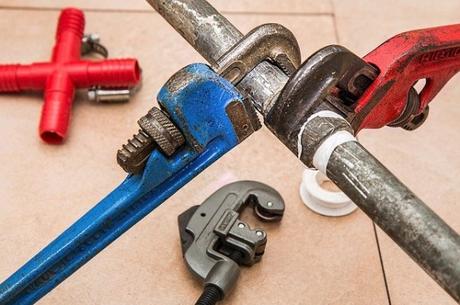
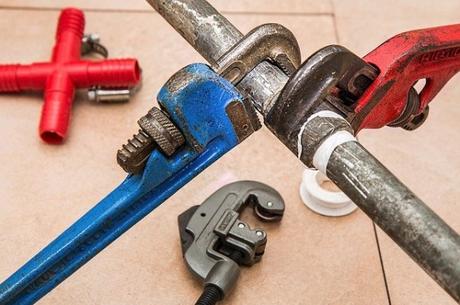
If your repair is not an emergency and you can wait, it’s better to do so. However, some repairs may need to be done urgently, and you may not have an option but to let in service employees or repairmen. Talk over the phone and clear out payment methods as well as job details so you can have as little contact as possible once he arrives. Ask if you can avoid signing on any documents.
Before the person comes, plan how he’ll enter the home and go the place of repair. Keep any necessary tools or manuals nearby. Clear any obstructions in the path so they don’t have to touch anything. Move aside furniture and roll up rugs and carpets. Make sure children and pets are away from the area. Lay down something on the floor – either an old table cloth which you can wash, or a disposable plastic sheet or at least some newspaper. The repairman can lay down his things on this.
Wear a mask for as long as he’s in the house. As soon as he comes, hand him some sanitizer before he starts and then lead him in. You don’t have to worry too much about his clothes. Experts say that the coronavirus is an enveloped virus – it needs a moist atmosphere or else it’ll dry out once the envelope seal breaks.
If you have to be around to hand tools to the serviceman, wear gloves and then hand him the tools. As with the maid, you can hand him the cash in an envelope if he doesn’t accept digital payments. Once he leaves, wipe or disinfect all the surfaces he may have had contact with, like switches, wires and door handles. If he washed his hands, you can disinfect the wash basin too. Clean the area where the work was done and wash your hands thoroughly afterwards.
Nutrition
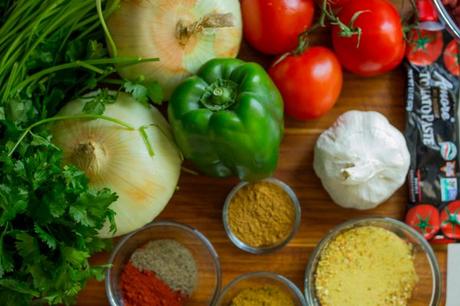
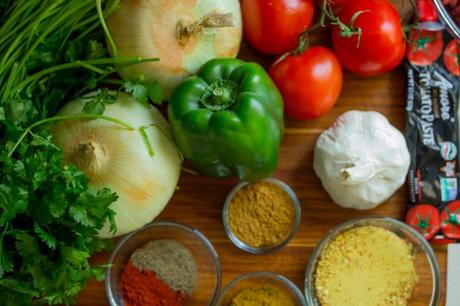
Since we’re going to have to live with Covid-19 for a while, we need to ensure we’re in our best shape to fight it. Good nutrition is the basis for strong immunity and overall well being. This is not the time to get sick with anything other than Covid either, since you don’t want to risk unnecessary visits to the hospital or clinic.
Breastfeed babies, exclusively till 6 months and with complementary solids after that. When grocery shopping include whole grains, legumes, fruits, vegetables, dairy, eggs, nuts, seeds, fish and lean meat. Avoid anything processed and packaged – these put you at risk of chronic lifestyle diseases and lower your immunity.
Along with food, it’s important to drink enough water. Skip sugary drinks and cut down on caffeine and drink more water. You can keep a bottle for every person of the family so you can track if everyone is drinking an adequate amount of water. Drinking lots of water also prevents over eating and obesity. Cut down on the amount of salt and sugar you add to your food and drink.
Physical Health
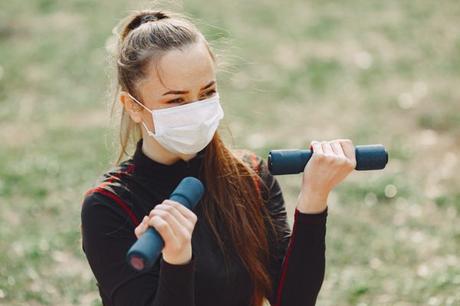
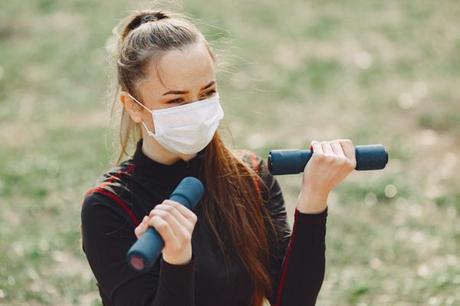
With Covid-19 taking over our lives, we’ve all been stuck at home, which means we’re more sedentary than earlier. This is especially true if you live in an apartment and walks in the compound are not permitted by your association. This is something every member of the family is dealing with, especially as gyms are closed and morning walks are not permitted in some places.
However, physical activity is more important now than ever before. It can reduce all the chronic illnesses that put people at higher risk of complications due to Covid-19. Regular exercise cuts the incidence of hypertension, heart disease, diabetes, cancer and many other illnesses.
Ensure babies get at least 30 minutes of tummy time a day, and spend as much time on the floor as possible. Young kids should get between 1-3 hours of physical activity a day. Adults should get at least 160 minutes of moderate intensity exercise a week.
Avoid hospital or clinic visits during this time as these are high risk places for Covid-19. Opt for telemedicine wherever possible, but never self-medicate – always ask your doctor first.
Mental Health
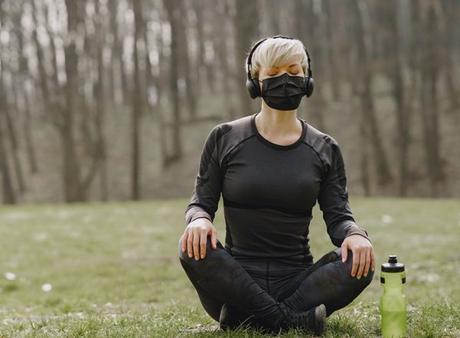
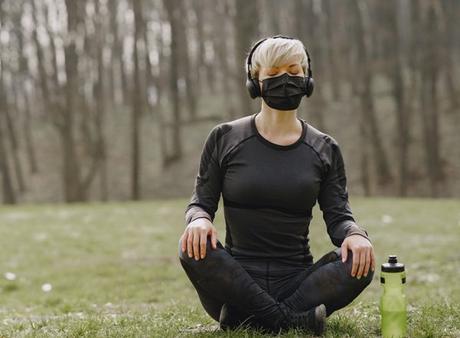
The Covid-19 pandemic has created another kind of problem – that of mental health. Being cooped up indoors all day, not being able to see friends and family as well as anxiety about the disease, finances and the future, has affected people around the globe.
While we cannot change external circumstances, we can take steps to heal ourselves. Make sure to stick to a routine, especially with regards to sleep times. Get dressed in the mornings even if you have no place to go. Have specific times for work and relaxation. Include some kind of movement in your day.
Another major source of anxiety is the news, which doesn’t have anything good these days. Consume news only from a few trusted sources, at a specific time everyday. Make more time for hobbies instead of endlessly scrolling through the news. You can also search for channels or accounts on social media that spread positive messages and happy stories.
If you’re too upset to try any of these, don’t hesitate to seek professional help. There are many doctors who are willing to offer therapy via phone or video call. If you are already being treated for a mental health condition, continue taking your medication and consulting your doctor for follow ups.
Isolation Plan
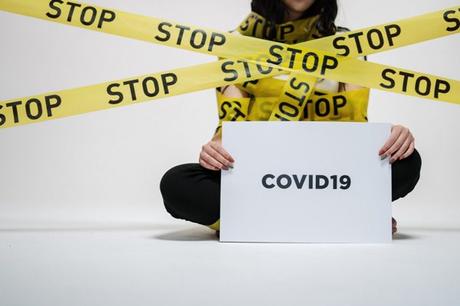
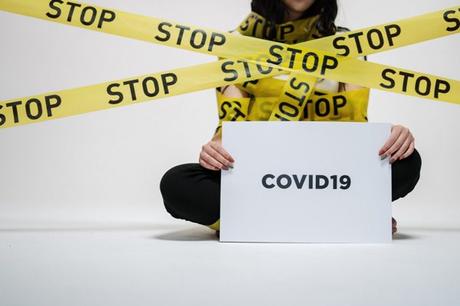
Most of the tips above serve to protect yourself from others, but we also need to ensure that others are protected from us in case we get sick. If you are even a little bit ill, stay home and self isolate yourself till you feel better. Unless your symptoms get worse or you think you may have Covid-19. Covid-19 symptoms can look like these
- A persistent cough
- Fever with temperature more than 37.8 degrees Celsius
- Loss of smell or taste
- Diarrhea or loose stools
If you notice any or a combination of these, don’t go to the hospital right away – call your local healthcare provider instead. Every state has their own set of guidelines and helpline numbers. Call them and follow their instructions.
As much as we try, sometimes we may still come in contact with an infected person at some place o the other. If that happens, we hay have to be quarantined for at least 14 days, even if we don’t display any symptoms. Isolation at home means being in a separate room with its own bathroom, away from the rest of the family. It helps to keep a quarantine kit packed and ready in case any of you need to be isolated from the others.
The kit should have clean clothes and underwear, towel, basic toiletries like toothbrush, toothpaste, soap etc., disposable face masks, sanitizer, disposable tissues and a dedicated set of plate, bowl, cup, spoon and fork. A less eco-friendly alternative is using paper plates and cups and throwing them away after each use. Don’t forget essential medication, charger, sanitary napkins and any other thing you can’d do without.
Prepare for such a situation by having an emergency contact list ready and available for every member of the family It should have all the government Covid- 19 helplines, local government health facility, ambulance as well as neighbors.
Last but not least – make sure to get all your information from trusted sources like the WHO, CDC or the Ministry of Health and Family Welfare, Government of India. Covid-19 is a new disease and the guidelines keep changing, so stay updated to stay safe.
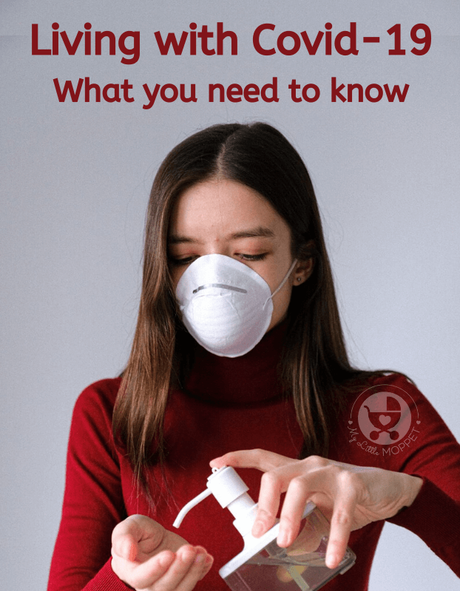
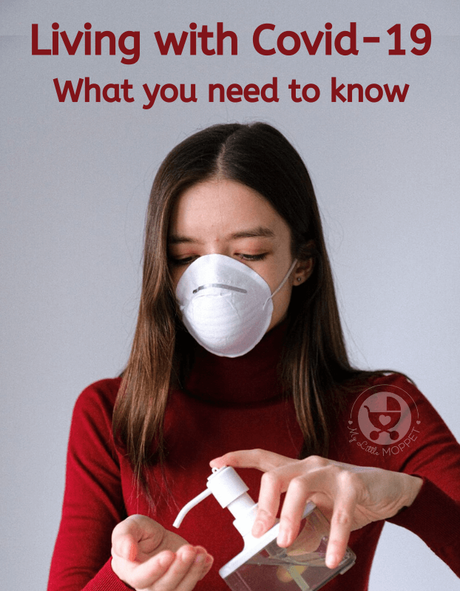
References:
- WHO Advisory for Public
- WHO FAQ
- Ministry of Health and Family Welfare, Govt. of India
- BBC Health News
- CDC Covid Daily Life
- New Indian Express
- Washington Post
- The Better India
- Hackensack Meridian Health
- UCHealth
- Food Standards Agency
- The Indian Express
Organic · FSSAI Certified · NABL Lab certified Buy Sprouted Sathumaavu Health Mix powder for Babies / Homemade Cerelac Dry Fruits Powder for Babies/Toddlers Pancake Mixes for Toddlers TweetPinShareWhatsAppEmail
Filed Under: Covid, Health, Parenting Tagged With: coronavirus, covid, health, parenting tips
